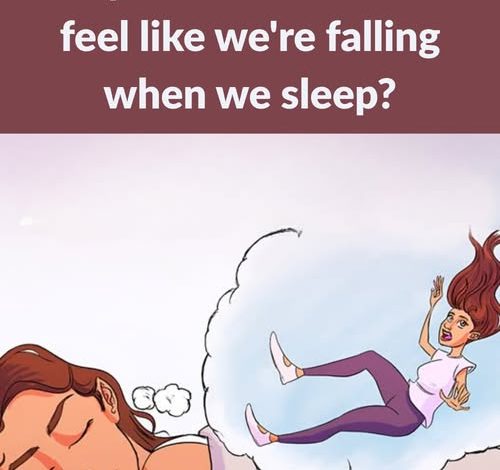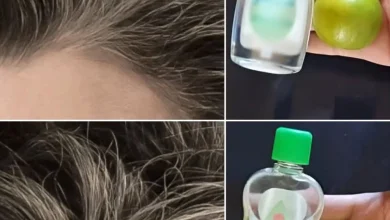If Your Body Suddenly Jerks While You’re Falling Asleep, This Is What It Means

You’ve finally sunk into bed, drained and ready for a deep, restful sleep, when—out of nowhere—your body jerks violently, snapping you awake as if you were falling. It happens so abruptly, and no matter how often it occurs, it never feels any less startling.
This unsettling phenomenon, known as a hypnic jerk or sleep start, affects up to 70% of people at some point. And while it’s perfectly normal, its cause remains somewhat mysterious.
Why Do Hypnic Jerks Happen?
Though science hasn’t pinned down an exact explanation, two leading theories attempt to unravel the mystery:
🧠 Nervous System Shift – As you drift into sleep, your nervous system naturally downshifts—your breathing slows, heart rate decreases, and body temperature drops. The resulting muscle tone changes may trigger involuntary twitches, causing a hypnic jerk.
🦵 Muscle Relaxation Misinterpretation – Another theory suggests that when your muscles suddenly relax, your brain misinterprets it as actual falling and sends signals to tense up, effectively “catching” you before impact.
What Triggers Hypnic Jerks?
Experts believe external factors can make hypnic jerks more frequent or intense, including:
✔ Caffeine & tobacco – Stimulants that interfere with relaxation
✔ Sleep deprivation – Increases nervous system activity
✔ Stress & anxiety – Heightens muscle tension
✔ Certain medications – Like Adderall & Ritalin, which affect the nervous system
Should You Worry About Hypnic Jerks?
Absolutely not! These jerks are completely normal and not a disorder, according to Dr. Rustgi, who explains:
“It’s simply your body signaling that it’s entering sleep mode. While disruptive, hypnic jerks are harmless.”
However, if they frequently interfere with sleep, it might be worth adjusting your bedtime routine to reduce occurrences.
How to Minimize Hypnic Jerks Before Sleep
🔹 Limit caffeine intake – Avoid coffee, tea, or energy drinks in the afternoon & evening.
🔹 Exercise wisely – Avoid intense workouts later in the day and opt for relaxing activities instead.
🔹 Try breathing exercises – Deep breathing before bed can help relax muscles & lower stress.
🔹 Improve sleep habits – Stick to a consistent bedtime and avoid screens at least an hour before sleep.
🔹 Manage stress levels – Meditation, relaxation techniques, or journaling can help calm the nervous system.
Final Thoughts
Hypnic jerks may be startling, but they’re entirely natural. While science continues exploring their exact causes, simple lifestyle changes can make them less frequent, allowing you to enjoy deeper, uninterrupted sleep.
So next time you feel that sudden jolt—know that you’re not alone and that your body is just easing into rest in its own unique way. 😴💙




